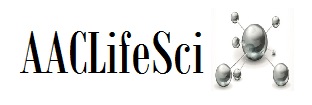Advanced Analytical Chemistry for Life Sciences (ACCLifeSci) to projekt edukacyjno-naukowy, finansowany z Programu Erasmus+ KA2, realizowany przez partnerstwo trzech uczelni:
1) Uniwersytetu Medycznego w Białymstoku (Lider),
2) Uniwersytetu Aveiro (Portugalia, partner).
3) Uniwersytetu San Pablo-CEU (Hiszpania, partner).
Okres realizacji: wrzesień 2015 - sierpień 2018
Koordynator projektu: prof. dr hab. Elżbieta Skrzydlewska
Wartość projektu: 298 631,00 EUR
Celem projektu było dostosowanie programów studiów trzech Uczelni Partnerskich do potrzeb służby zdrowia w zakresie wykorzystania technik Zaawansowanej Chemii Analitycznej w naukach omicznych poprzez wymianę doświadczeń na poziomie europejskim. Szybki rozwój chorób cywilizacyjnych jest główną przyczyną wzrostu zachorowalności i umieralności w Europie, a badania ilościowe/jakościowe nad identyfikacją ich biomarkerów są jednym z możliwych rozwiązań. Omiki mogą wyjaśniać biochemiczne podstawy funkcjonowania organizmu poprzez charakterystykę/oznaczenie ilościowe pul cząsteczek biologicznych. Ponieważ pojedyncze związki są nieskutecznymi biomarkerami, omiki dają nowe możliwości bardziej szczegółowego zrozumienia chorób. Poprawia to efektywność, monitorowanie i prowadzi do spersonalizowanej terapii. Zaawansowana Chemia Analityczna (AAC), stanowiąca instrumentalną podstawę wszelkich badań farmaceutycznych/ biomedycznych, pozwala na zastosowanie założeń omiki w praktyce.
Cele projektu zostały osiągnięte poprzez:
- przygotowanie kadry akademickiej trzech Uczelni Partnerskich do kształcenia doktorantów w zakresie stosowania technik AAC w metabolomice/lipidomice i proteomice,
- wprowadzenie zmian w programach studiów,
- stworzenie otwartych zasobów edukacyjnych – manuskryptu i e-materiałów dla studentów,
Realizacja projektu obejmowała partnerskie działania edukacyjne i szkoleniowe, polegające na wymianie doświadczeń i dobrych praktyk, tworzeniu stabilnej i aktywnej sieci współpracy oraz rozwoju osobistym i społecznym uczestników projektu.





_m.jpg)